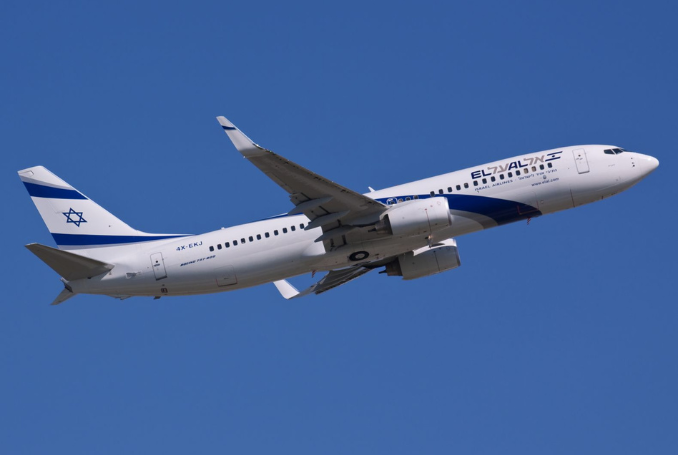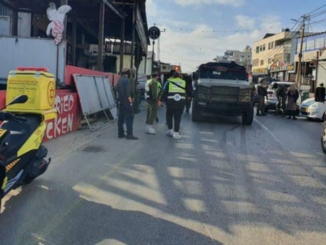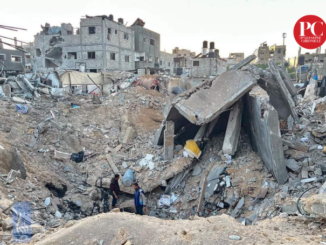
“They are cancelling flights and planes are pretty empty… We understand it’s the situation because it was different before.”
The last direct flight between Johannesburg and Tel Aviv has taken off from South Africa following El Al Israel Airlines’ announcement in January that the route would be canceled from April 1.
The airline cited a steep drop in demand after South Africa filed a lawsuit against Israel at the International Court of Justice (ICJ) accusing it of committing genocide in its military assault on the besieged Gaza Strip.
“Israelis don’t want to fly to South Africa,” an El Al spokesperson reportedly said at the time. “They are cancelling flights and planes are pretty empty… We understand it’s the situation because it was different before.”
“The fact that the Israelis don’t want to go to South Africa but do want to go to other places helps us decide that we’re pausing that route,” the spokesperson said.
What Does the ICJ Ruling Mean for Gaza? – Intl. Law Expert Answers
El Al, which flew up to twice weekly directly to Johannesburg, also reportedly cited the current security situation.
Air travel to and from Israel plummeted after the October 7 Resistance operation and the subsequent war, with dozens of flights canceled by major airlines. Some flights resumed in December and January, according to The Times of Israel.
The airline’s announcement of the cancelation was made on January 26, hours before the ICJ ruled in the case brought by South Africa.
Plausible Case of Genocide
The top UN Court found the case for genocide plausible, and ordered Israel inter alia, to take action to prevent and punish genocide, and incitement to genocide, and to enable the immediate and effective provision of basic services and humanitarian assistance to besieged Gaza.
South Africa has since submitted two urgent requests to the Court. The first in February was for the Court to consider whether the decision announced by Israel to extend its military operations in Rafah, “which is the last refuge for surviving people in Gaza, requires that the court uses its power to prevent further imminent breach of the rights of Palestinians in Gaza.”
In its second request in March South Africa asked the provisional measures the Court ordered on January 26, to be strengthened to prevent a catastrophic famine in the besieged Gaza Strip.
Israeli Offensive in Rafah – South Africa Submits Urgent Request to ICJ
South Africa stressed that United Nations experts warned that “the number of deaths will increase exponentially unless military activities are halted and the blockade is lifted.”
Last week the Court granted the request and unanimously ordered Israel to take “all necessary and effective measures to ensure ‘unhindered provision’ of urgently needed basic services and humanitarian assistance.”
In the order, which “has binding effect”, the Court reaffirmed the “provisional measures indicated in its Order of 26 January 2024”.
Moreover, it unanimously ordered Israel to take “all necessary and effective measures to ensure ‘unhindered provision’ of urgently needed basic services and humanitarian assistance.”
‘Extreme Urgency’ – South Africa Files Urgent Request to ICJ over Gaza Starvation
Staggering Death Toll
According to Gaza’s Ministry of Health, 32,845 Palestinians have been killed, and 75,392 wounded in Israel’s ongoing genocide in Gaza starting on October 7.
Moreover, at least 7,000 people are unaccounted for, presumed dead under the rubble of their homes throughout the enclave.
Palestinian and international organizations say that the majority of those killed and wounded are women and children.
The Israeli aggression has also resulted in the forceful displacement of nearly two million people from all over the Gaza Strip, with the vast majority of the displaced forced into the densely crowded southern city of Rafah near the border with Egypt – in what has become Palestine’s largest mass exodus since the 1948 Nakba.
Israel says that 1,200 soldiers and civilians were killed during the Al-Aqsa Flood Operation on October 7. Israeli media published reports suggesting that many Israelis were killed on that day by ‘friendly fire’
(The Palestine Chronicle)








